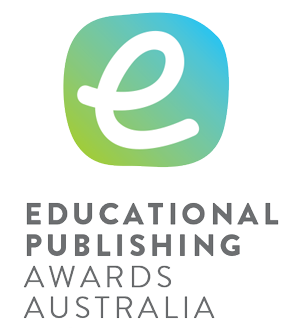What does the new QCAA Physics General Senior Syllabus look like?
| Physics | |||
|---|---|---|---|
| Unit | Syllabus content | Assessment | Assessment method |
| Unit 1 | Thermal, nuclear and electrical physics
|
Formative internal assessment/s | Schools should develop at least one assessment per unit, with a maximum of four assessments across Units 1 and 2 |
| Unit 2 | Linear motion and waves
|
Formative internal assessment/s | Schools should develop at least one assessment per unit, with a maximum of four assessments across Units 1 and 2 |
| Unit 3 | Gravity and electromagnetism
|
Summative internal assessment
|
Summative external assessment: Examination (50%) |
| Unit 4 | Revolutions in modern physics
|
Summative internal assessment
|
Summative external assessment: Examination (50%) |
Source: Physics 2019 v1.0, QCAA General Senior Syllabus, Queensland Curriculum & Assessment Authority June 2017
Students studying the Senior Physics syllabus from 2019 will:
develop the skills for success in their future work and life
study modern physics theories and models
engage with the understandings of the universe
develop new knowledge, and have the opportunity to refine their skills through practical activities
distinguish between claims and evidence, opinion and fact, and conjecture and conclusions
explain phenomena and evaluate claims by finding evidence to support or refute the claims
study concepts and theories and explain phenomena using their understanding of physics.
The basics
To successfully implement the new Senior Physics syllabus, there are three basic points to be aware of:
The new course is made up of four units of study to be taught over two years (i.e. Units 1 and 2 to be taught in Year 11 and Units 3 and 4 to be taught in Year 12). Students should complete Units 1 and 2 before beginning Unit 3. It is recommended that Unit 3 be completed before Unit 4.
Units 1 and 2 have students working across all syllabus objectives and beginning to engage with the course subject matter. The teaching of Units 3 and 4 consolidates students’ learning. Subject matter, learning experiences and assessment increase in complexity from Units 1 through to 4 as students develop independent learning.
Only the results from Units 3 and 4 will contribute to ATAR calculations. Each unit has been developed to a notional time of 55 hours of teaching and learning, including assessment.
What is Oxford publishing for the new QCAA Physics General Senior Syllabus?
The publishing team at Oxford is currently working with an expert Queensland author to deliver high-quality resources directly mapped to the new syllabus. These include:
New Century Physics for Queensland
Units 1 & 2 (3rd edition)
New Century Physics for Queensland Units 1 & 2 3E Student book + obook assess
- Print student book with digital access
New Century Physics for Queensland Units 1 & 2 3E obook assess
- Digital student access (12 months access)
New Century Physics for Queensland Units 1 & 2 3E Teacher obook assess
- Digital teacher access
New Century Physics for Queensland Units 1 & 2 Student workbook
- Print Student workbook
Institutional purchases
Please contact your Education Consultant if your school purchases resources on behalf of students and requires multi-year digital subscriptions. If your school has a different model, ask your Education Consultant about purchase options.
New Century Physics for Queensland
Units 3 & 4 (3rd edition)
New Century Physics for Queensland Units 3 & 4 3E Student book + obook assess
- Print student book with digital access
New Century Physics for Queensland Units 3 & 4 3E obook assess
- Digital student access (12 months access)
New Century Physics for Queensland Units 3 & 4 3E Teacher obook assess
- Digital teacher access
New Century Physics for Queensland Units 3 & 4 Student workbook
- Print Student workbook
Institutional purchases
Please contact your Education Consultant if your school purchases resources on behalf of students and requires multi-year digital subscriptions. If your school has a different model, ask your Education Consultant about purchase options.
Why choose Oxford QLD Senior Science resources?
Our Senior Physics resources are designed to work for you in the classroom. They will:

provide learning pathways that ensure complete coverage of the syllabus
clearly model approaches to inquiry learning and critical thinking

provide detailed support and resources for assessment (including exam preparation and practice)

suggest methodologies for mandatory and suggested practicals outlined in the syllabus.
All these features are designed to save you time when lesson planning, reduce the stress of syllabus implementation and ensure the best learning outcomes for your students.
“
From January 2019, senior secondary syllabuses in Queensland will change to support the introduction of new assessment and tertiary entrance systems. As teachers across Queensland prepare for this significant change, the Secondary team at Oxford will be busy collaborating with local teachers and educators to create a range of world-class teaching and learning materials. Our goal is to make implementation of the new systems as smooth and stress-free as possible for you.
–The Secondary Publishing Team at Oxford University Press
”

